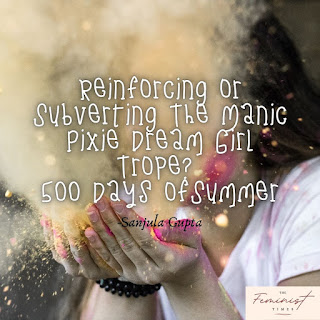On the Vilification and romanticization of female bonds
Recently there was a lot of buzz created around a demeaning comment
by Kangana Ranaut, she in an interview had called Urmial Mantodkar, a
‘soft porn star’. And once again this instance added more substance to
the already glorified tales of female rivalry.
I couldn’t help but reflect upon something so simple and beautiful;
something I wish I didn’t have to write about yet knew this had to be
addressed. I’m taking about female friendships. Those of you who have
been lucky enough to have strong female bonds in their life know what I
am talking about. Ain’t nothing like the power of your girl gang, right!
Psychological studies have proven that female friendships are more
nourishing than male ones; and women agree that the level of support,
criticism, love and contentment female bonds provide can’t ever be
matched up to with anything else. The sad part however is that most of
us learn this the hard way. Since childhood, the trait of competitiveness
is ingrained in all of us. When it comes to boys it is in professional
contexts, to get a better job, a better salary, consequently a better bride
than the other one. But when it comes to the girls, it is usually to be a
better prospect, for these suitable grooms. It is conditioned in women
very early that the men will marry anyone they want after settling, so
when the time comes, the girls have to be ready with proper training of
cooking, maintaining household, fitting to conventional beauty
standards to be the best option. Being an option here means being
compared with many others. Here is the ultimate rivalry we were taught
and inherited, something we didn’t realise but were conditioned to-
being better than other girls. Always viewing them as competition. Many
would say that things have changed, and women make choices for
themselves but you have to confess that the foundations of criticism
and competition remain intact.
We are given this conditioning through all sorts of medium, nothing
might be better than taking cinema as an example. The popular movie
series ‘Mean Girls’ perfectly shows how girls would judge each other,
leave no opportunity to put each other down and very intriguingly fight
over the same guy. The guy in all such movies is depicted no less than
‘angelic’. However, one girl would always be the villain. Female rivalry is
fed quite young to us. And then without realising a lot of us become a
part of this bias & even perpetuate it.
I’ll give you very basic yet illogical everyday arguments. How many
times have you heard people (mostly girls) say,
‘I have more guy friends yaar, there’s less drama with them’
‘Gosh yaa, these girls look so fake na, always gossiping’
‘You know girls do a lot of bitching, that’s why I don’t make many girl
friends.’
And the best one that girls proudly take as a compliment, ‘You’re not
like other girls’.
In this institution we call patriarchy, the path wavers and decision
makers might always be powerful, upper caste men, however the
soldiers that keep the citizenry in check will always be the women.
You’ll easily find women policing other women and young girls who
dare to differ by which I simply mean, who don’t adhere to the laid out
gender roles and norms. Women unconsciously absorb beliefs about
their rightful place, and those messages show up in how women judge
each other. This further leads them to mistreat, underestimate and
distance themselves from other women, to increase their power while
standing amongst men. It’ll be the women in your colony keeping an
eye on you, or judging you when you wear crop tops or shorts. In
retaliation such women will be judged by girls & will be called the colony
ki ‘aunties’, who have nothing better to do with their time. But don’t you
think this further fuels female rivalry in a way? These women, whom we
refer to as aunties were taught that they weren’t good at anything else
than looking after the family, making sure their kids didn’t put a toe out
of line but secretly make fun when others did. In fear of this
embarrassment all women would make sure their kids would adhere to
patriarchal norms, else these aunties would bitch. And when you see it
from afar you realise that this is nothing but a shrewd way of
perpetuating gender.
You remember Ms. Sharon Norbury, the calculus teacher in Mean
Girls? In the last few scenes when that diary was found with insults of
every girl, she said something really powerful- “ You girls have to stop
calling each other sluts and whores! When you do that it becomes okay
for the guys to call you that too!”
Maybe that’s how we can stop people from vilifying female bonds and
overcome this stereotype that women can’t be friends. I personally feel
sad for those who overshadowed by this bias never get to feel the
warmth of female friendships. No matter how small your win, these
cheerleaders will never fail to glorify them all. And then, hysterically,
people complain that these women supporting women is too dramatic.
But you know what is more dramatic, deeper and insanely stupid?
Patriarchy. And this age old tradition of pitting women against each
other & morally policing each other. So if one finds your female bonds
to be a little extra, fuck it! You do you, girl! Uplift each other as much as
you can, make sure no one amongst your friends label other girls in a
derogatory manner. Stop your grandmothers, aunts and mother when
they speak ill of some other women deciding for herself, be it clothes,
friends, having a relationship, or getting a divorce. Either the entire
community upgrades their mind sets and progresses, or there is no
progress at all! Pave a path for each other, help each other through
mentorship, advocacy and creating opportunities. And the next time that
smarty pants compliments you for being different than other women,
ask that PhD scholar what are women like? Stop a sexist joke at its
onset. You know, most of the times it’s not that people are not willing to
listen and understand; it’s just that they were never made to look
beyond their privilege and consciously made aware of their own biases.
-Kuhu Srivastava



Comments
Post a Comment